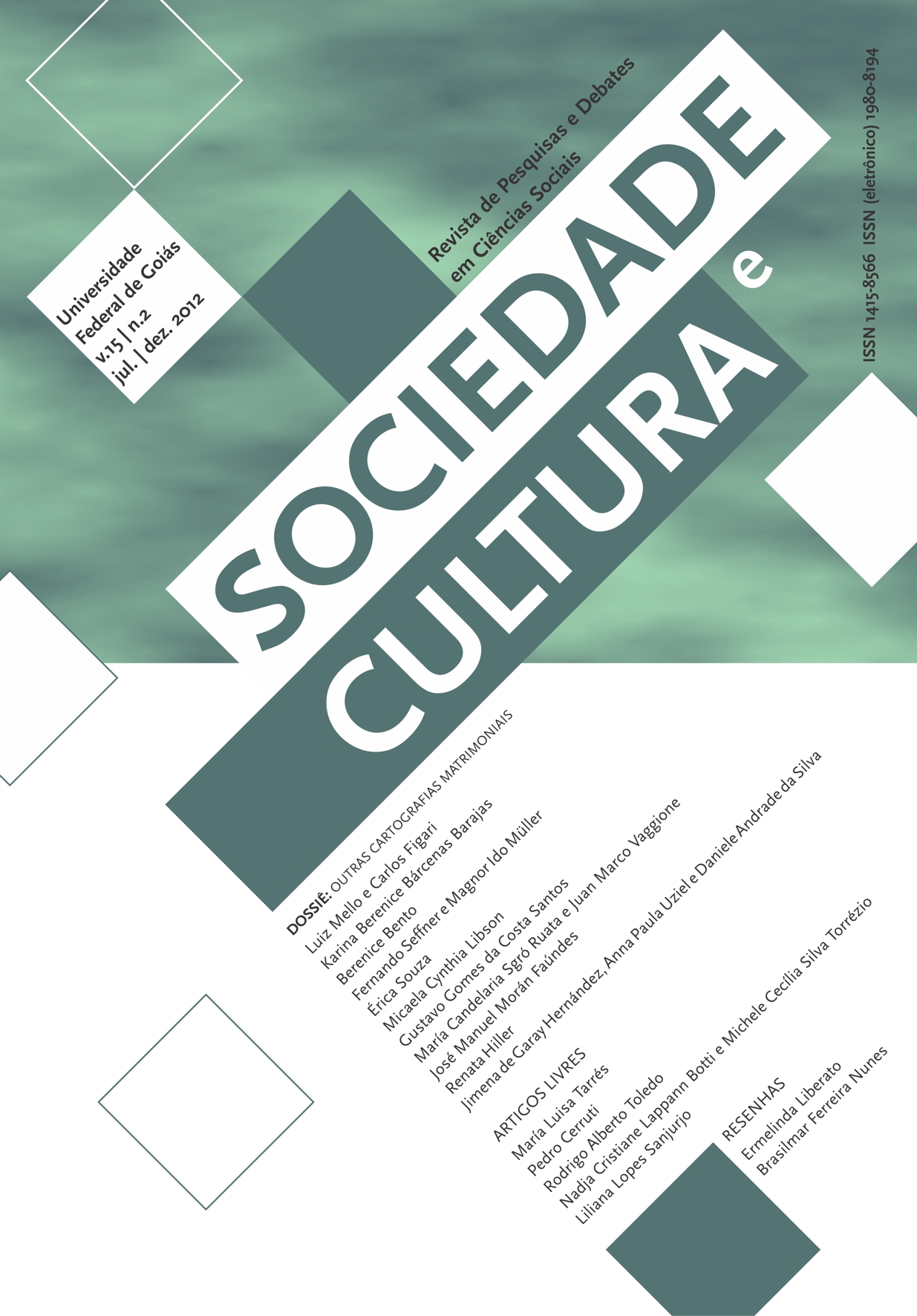Sexualidad y alteridad: argumentos del conservadurismo religioso cordobés contra el matrimonio “igualitario”
DOI:
https://doi.org/10.5216/sec.v15i2.22402Keywords:
sexualidad, matrimonio, naturaleza, nación, CórdobaAbstract
En 2010 Argentina aprobó la ley que modificó el Código Civil, permitiendo a parejas del mismo sexo contraer matrimonio. Durante el período de discusión legislativa,diversos sectores conservadores esgrimieron argumentos públicamente para evitar la aprobación de la ley. En Córdoba, la movilización de estos fue ampliamente visible, y sus discursos circularon por diversos espacios públicos, alcanzando notoriedad incluso a nivel nacional. Tomando esto en consideración, el presente artículo analiza los argumentos esgrimidos por el movimiento conservador religioso cordobés, poniendo especial énfasis en las construcciones de la alteridad sostenidas desde estos lugares a través de las ideas de nación, familia y naturaleza. A partir de estos ejes, se consideran las articulaciones argumentales que buscaron ligar las expresiones no heterosexuales con la idea de un Otro, entendido como antítesis de lo natural y de la identidad nacional.Downloads
Download data is not yet available.
Downloads
Published
2013-02-05
How to Cite
FAÚNDES, José Manuel Morán. Sexualidad y alteridad: argumentos del conservadurismo religioso cordobés contra el matrimonio “igualitario”. Sociedade e Cultura, Goiânia, v. 15, n. 2, p. DOI: 10.5216/sec.v15i2.22402, 2013. DOI: 10.5216/sec.v15i2.22402. Disponível em: https://revistas.ufg.br/fcs/article/view/22402. Acesso em: 23 feb. 2026.
Issue
Section
Thematic Dossier
License
Authors who publish in this journal agree to the following terms:
- Authors retain the copyright and grant the journal the right of first publication, the work being simultaneously licensed under the Creative Commons Attribution License, which allows the sharing of the work with acknowledgment of authorship and of the initial publication in this journal;
- Authors are authorized to enter into additional contracts separately, for non-exclusive distribution of the version of the work published in this journal (eg, publishing in an institutional repository or as a book chapter), with acknowledgment of authorship and of the initial publication in this journal;
- Authors are allowed and encouraged to post and distribute their work online (eg, in institutional repositories or on their personal page) at any point before or during the editorial process, as this can bring productive change as well as increases the impact and the citation of the published work (see O Efeito do Acesso Livre).



